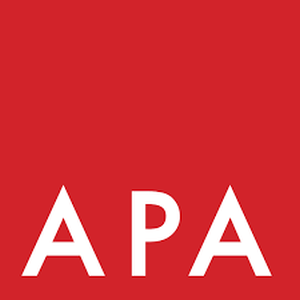
5 Minutes With… Steve Davies

A man of many talents, the Advertising Producer’s Association (APA) Chief Executive, Steve Davies, once convinced the then Home Secretary, Jack Straw, that Mike Tyson – yes, the former heavyweight boxing champion – should be allowed into Britain. Why, you ask? The man now fully integrated into the brilliantly chaotic world of production was once a partner in a Fleet Street law firm. Laura Swinton chats to Davies about the threats and changes to the production and post communities, adapting to developments in tech and media, and the time that Mr Tyson accused Davies of spitting at him.
LBB> How did you get involved with the APA and the production community?
SD> I was looking for a new challenge and the APA wanted a lawyer to be their new Chief Executive. I could see that the association could be much more effective through building better and more positive relationships, and that there was scope in their offering. With that in mind, I wanted to deliver what I thought members deserved – absolute maximum value for their membership fee.
LBB> We heard a rumour that in the time before you were with the APA you were Mike Tyson’s lawyer… is that true??
SD> Yes, I was a partner in a law firm that was based on London’s Fleet Street. I worked on sports and TV rights contracts for broadcasters like Sky and HBO. Mike Tyson wanted to come to the UK to take part in a boxing match but was denied entry, so I represented him at a hearing before the then Home Secretary, Jack Straw. Fortunately I was able to persuade him that Mike Tyson wasn’t a risk to the public and should be allowed into the country.
The first time we met and said ‘hello’ he accused me of spitting at him, which was definitely a bit odd – I think he was testing me out in some way. After that he was always pleasant to deal with.
LBB> And has your experience in law helped you with your work at the APA?
SD> Yes, definitely. There are contractual and copyright issues and claims that benefit from legal analysis and advice. On top of those, there’s confidentiality agreements, which seem to be proliferating at the moment. Ironically, by developing other areas of the APA, like helping members market themselves and understand the potential of new markets, the direction of our new services has dramatically expanded. Despite that, the legal and production advice is still at our core.
LBB> The APA isn’t afraid to take on big issues and stand its ground – most recently there’s been the Red Bee issue. Why was this an important principle to defend and how do you see the scenario playing out?
SD> The Red Bee issue is a long running battle, but we’re here for the long run. As ever, we’re not fighting for special favours for our members – they are a battle-hardened bunch, developing successful and internationally renowned businesses with none of the subsidies or help that film companies receive. All we're looking for is the opportunity to win work on the open market. That is our message to the BBC: let the market do its job! There is an over-supply of great production companies and directors, VFX companies and editors; so use the competition between them to get the best talent at the best price. There can’t be a better system for buying than a competitive market, as evidenced by the fact that that is how advertisers buy the services they need. Why not the BBC?
LBB> I’m interested to pick your brains about the growth of organisations like WAM and Hogarth – do you see them as a threat to the production and post communities? And with more clients willing to by-pass agencies completely on certain projects and work directly with a post house or studio, how do they fit into that model anyway…
SD> New models and ways of doing things are welcome but we are back to the open market argument. Would clients be better served if they or their agencies seek to buy VFX and editing work for each project on the open market, and use competition to get the best talent, at the best price? We think so. That argument is strengthened by the fact that the best VFX and editing talent is within independent VFX and editing companies.
When being advised to use a post house, which is maybe part of the same holding company as the advisee, or being told about ‘synergies’ and cost savings, clients should ask themselves whether their best interests are really being served?
LBB> Since you’ve been with the APA, what have been the biggest changes you’ve seen within the production community?
SD> When I started it was all about TV advertising – now it's about content for all screens. For a time, some soothsayers saw digital as the end of TV advertising. That has past. There was never any evidence for that, and the British public’s love affair with TV shows no sign of abating. Making advertising content for new platforms - if we can still call them that - is the opportunity, but making that pay is the challenge.
Competition has also become more and more fierce and, with the economic downturn, APA members have had to show great ingenuity in evolving their businesses to survive and have a chance of prospering in the future.
LBB> There’s quite a high degree of solidarity among the London/UK production companies, particularly when compared with other countries. Why do you think that is?
SD> This is my favourite subject! The business here has a much better structure than anywhere else. This is achieved via the standard contracts and processes that provide a framework for all productions and the quality of advice and ethics that are worked and lived by. There has been some erosion in the pitching and payment process, for example, but we are still miles ahead of most countries in the way that we work. I believe these are the fundamental foundations for the great work that the UK advertising industry is famous for. It allows the agency and production company to spend their time on creating a great commercial, rather than sorting out contracts and business affair issues.
We are also fortunate to have the counsel of the two APA Chairmen, Lewis More O’Ferrall and John Hackney, who have been within their roles for something like 15 years, and whose wisdom and love for the industry has been critical in enabling us to take on issues as effectively as possible.
I think the real sense of community within the UK is an important factor. It’s still a very London and Soho-centric business.
LBB> You guys headed over to Silicon Valley this year [Report can be downloaded here] - how do you think production companies are going to have to adapt, in coming years, to keeping up with tech and media developments?
SD> Probably like advertising agencies and everyone else, the potential provided by new technology is exciting and overwhelming. APA Members are keen to understand the potential of new technologies for communicating advertiser’s messages to consumers. But they have to learn about it, while fighting to get the next production in, and producing ones that they’re working on at the same time to the best possible quality.
That doesn’t allow much time for contemplating the future. Events that we’ve hosted, like 'The Future of Advertising…In One Afternoon' which was hosted at BAFTA, are designed to bring those key understandings about potential ways of reaching consumers in inspiring bite-sized chunks.
'Creative London Comes To Silicon Valley' was a part of that. The member’s enthusiasm for learning was demonstrated by the fact that representatives of 27 companies joined us for the trip. We went to YouTube, Google, Netflix, Twitter, AT&T Foundry, Orange Labs and a host of others. What was really fascinating was that the companies we met were so open about their business plans. They really rolled out the red carpet for APA members and wanted to develop themselves as content providers. It was great to see them genuinely keen to meet the creators of top quality content.
LBB> I believe that the next delegation will be to South America. Obviously it’s a growing market and, with the Olympics and World Cup just around the corner, there are some real opportunities there – but I wonder if you had any thoughts about the challenges that UK production companies might face in the region?
SD> We have taken delegations and created events in Tokyo, Shanghai, Beijing and Mumbai, as well as Silicon Valley, and are consulting with members about which markets they would like us to help them explore next.
I’ve always been a bit inhibited from targeting Brazil because it sounds like a holiday, but we have looked at it. With its huge growth and the two biggest sporting events in the world happening there, it’s obviously interesting to members. However, after some research into the country’s potential, we realised that it might not be as attractive of a proposition as it should be because of its trade barriers in commercials that come in the form of a tax called Condecine. That means that any commercial to go on-air in Brazil must have been made in Brazil by a production company that is registered and has been operating in Brazil for the past five years. I think that’s wrong because the British Government and Olympic Committee have helped Rio with advice but we’re not allowed to take part in the benefits. After hearing about the market’s reduced potential, APA member’s feedback has focused instead on an interest in South By South West (SXSW) in Austin, Texas.
LBB> The APA show is just around the corner – what can we look forward to this year?
SD> I’ve actually just been through the entries and I can promise a great collection this year. Sitting down and watching it on the big screen with all of the people who have made the commercials – that is always a treat.
Our aim is to showcase the best work and then have the best party. The APA show was created as an antidote to traditional awards – buying tables, long presentations, lengthy speeches – I think the industry has responded. Lots of people tell me that it's their favourite night. They can’t all just be ‘being nice’.
I really think that the show is also a cure to the ‘things aren’t what they used to be' mindset. Instead, every year I think it says that ‘actually we have made some bloody good ads this year’. 2013 is set to be a strong year.
LBB> Is there an interest from other countries in setting up something like the APA?
SD> They're all very keen, and we certainly try and help countries and share information. We tried to help Ireland recently. You have to be practical. One of the big advantages that the US and UK have is that there is a sufficiently big industry to be able to support full time staff. In a small market with ten or so companies, they can’t afford that, so they have to try and do it on a voluntary basis. And what happens, and what you have to guard against, is that you get a lot of enthusiastic people together, they meet, but they’re all too busy to do anything. By the next meeting nothing really has happened. To make it work in a small market you need people to realise these challenges and be extra enthusiastic to overcome them.
LBB> Not asking you to play favourites, but over the last year which pieces of work that you have seen from the UK have made you particularly proud?
SD> We actually looked at the judging of the APA collection the other day. People are naturally feeling a bit battered and saying that there’s not as many good scripts out there as there used to be, but when you sit down and watch the work, you realise that there’s actually some bloody good stuff out there. It’s one of the nice things about it I think. There have been a couple of years – say two years ago – when I’ve thought entries had become a bit thin. But looking at this year’s selection, there’s such a variety of really good work that I think it’s set to be a great collection – not just to watch on the night, but to take overseas. To take stuff overseas, it’s not just about the big glossy ads like Virgin and John Lewis, which of course are fantastic, it’s also about having some quirky, small budget work that shows imagination and creativity, or is just plain funny. I always think that you have to look at different sectors too. For example, when someone makes a really good bank commercial, you can appreciate it maybe more than a good ad from the charity sector. There are always lots of great ads from the charity sector, but there also tends to be more freedom. A bank ad tends to not benefit from that freedom.
LBB> Speaking to people in the production and agency sides of the industry over the last month or so, it seems that a lot of people are unseasonally busy and, perhaps, busier than they have been in recent years. From your perspective, do you think there’s an upswing and recovery underway, or is it a blip?
SD> What I’ve noticed for a while is that there’s no real pattern anymore. The first four months of this year were the worst period ever. We always look at surveys and forecasts about the economy and adspend; we listen to what Martin Sorrell has to say, but I’ve noticed that there’s very little correlation between what’s happening on the ground and all those forecasts. They could all be saying that everything’s looking up and everyone’s quiet or they could be saying that the outlook’s quite grim but everyone’s busy. You almost have to give up. People in production tend to take the view that you can’t guess, you’ve just got to plough on and make the most of it.
People ring us about all sorts of production issues all the time – first of all, that’s what we’re here for, and secondly, I’d rather they did that than – as one person did – email saying ‘we haven’t got any work at all, has anyone else’. It’s a much worse call to deal with. We can help with contractual and legal issues, we can help in a broader sense with marketing and opening up new markets, but we can’t get them a script in that day. It’s frustrating.
LBB> In terms of the rest of the year, what’s planned?
SD> We try to have as many events as possible and spread them out for resource reasons. We’ve just had the Young Director Award screening at Rushes and we’re holding Beak Street Bugle film screenings, in partnership with MPC, once a month. We did one this week with a film from 2AM about the Olympic final when Ben Johnston was disqualified. They actually brought Ben Johnston over from Canada to do a Q&A, which was amazing. There are little presentations at Framestore and things like the future of advertising in March. It’s a variety of events from big to adhoc small.











